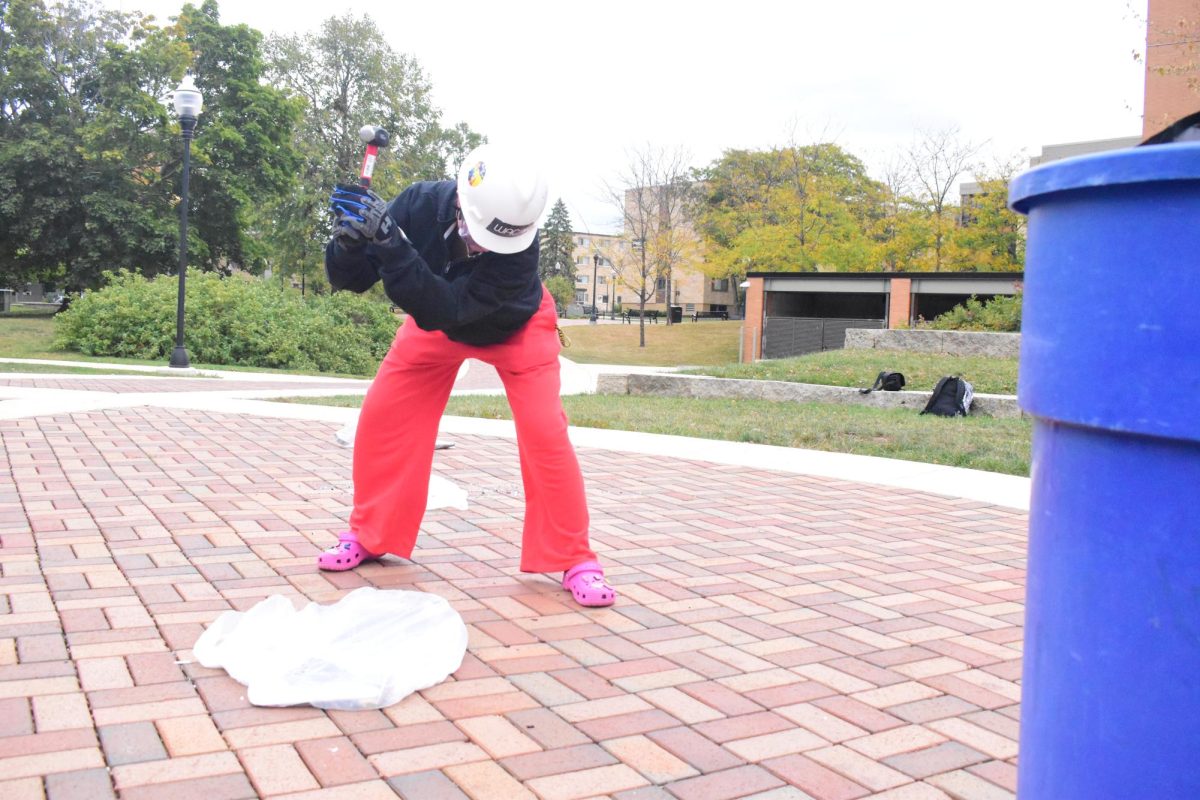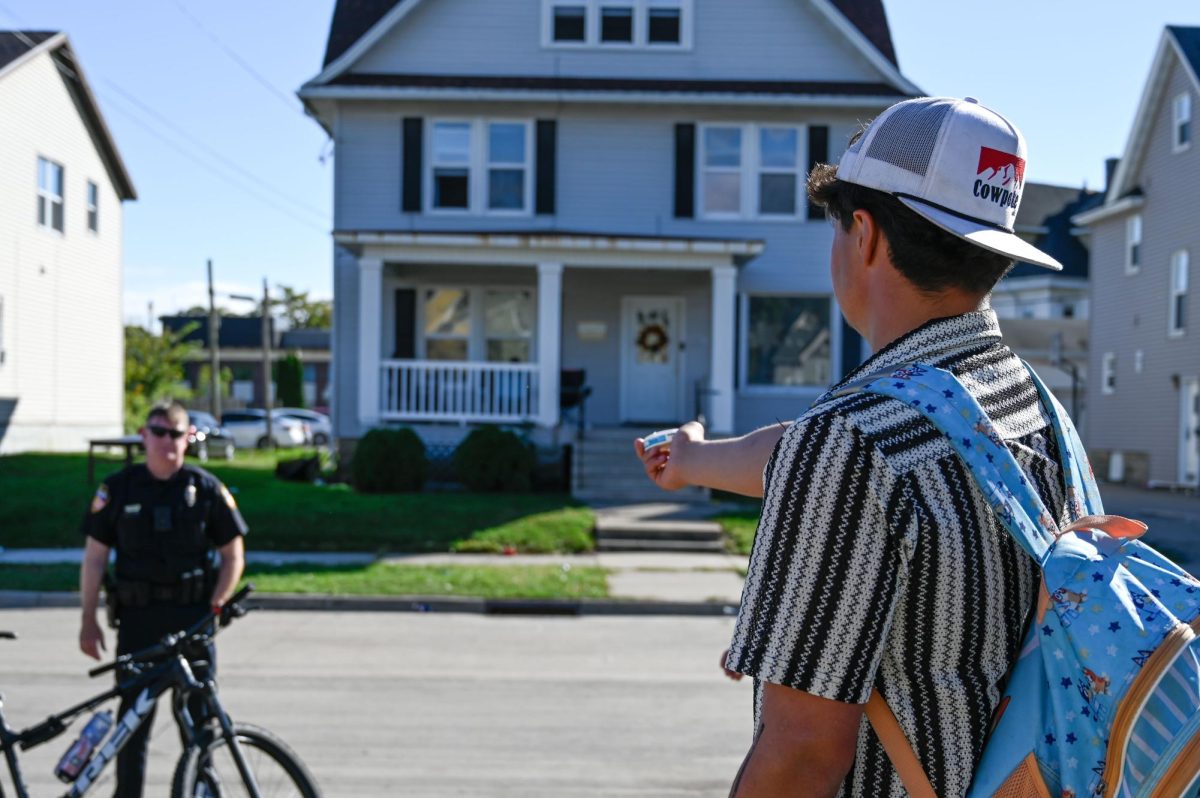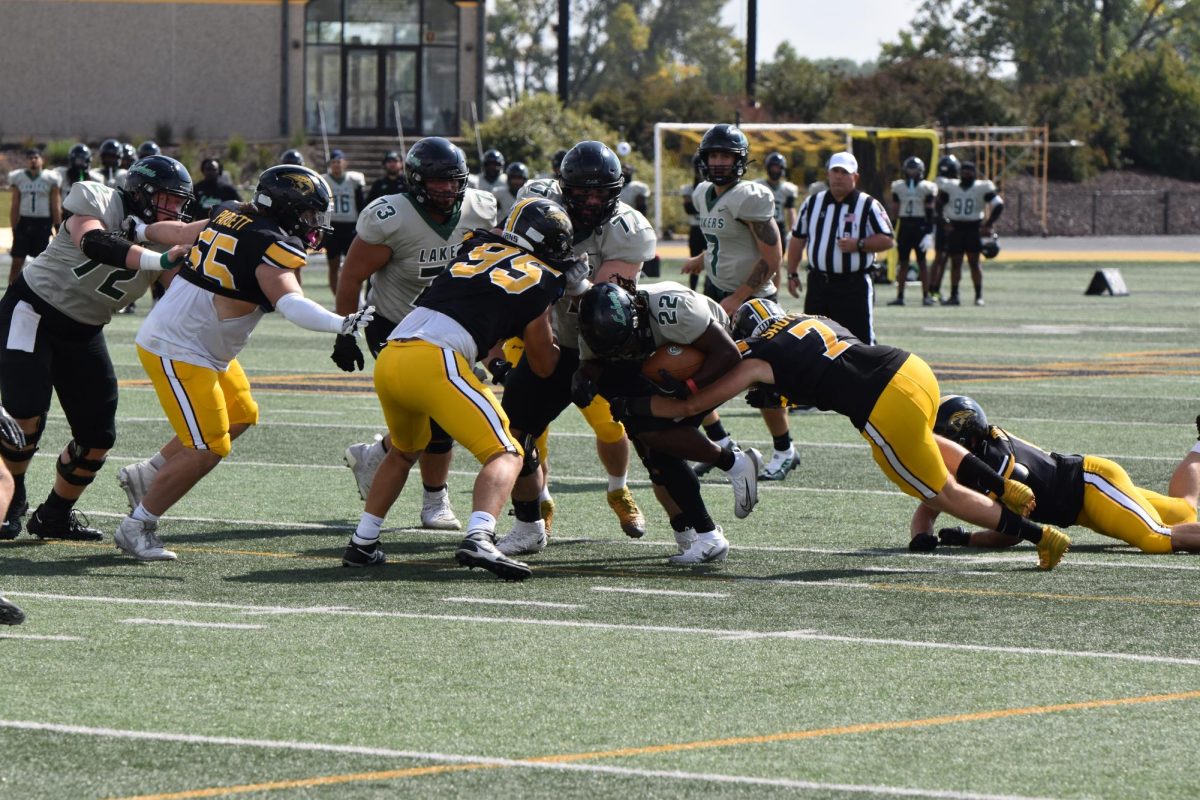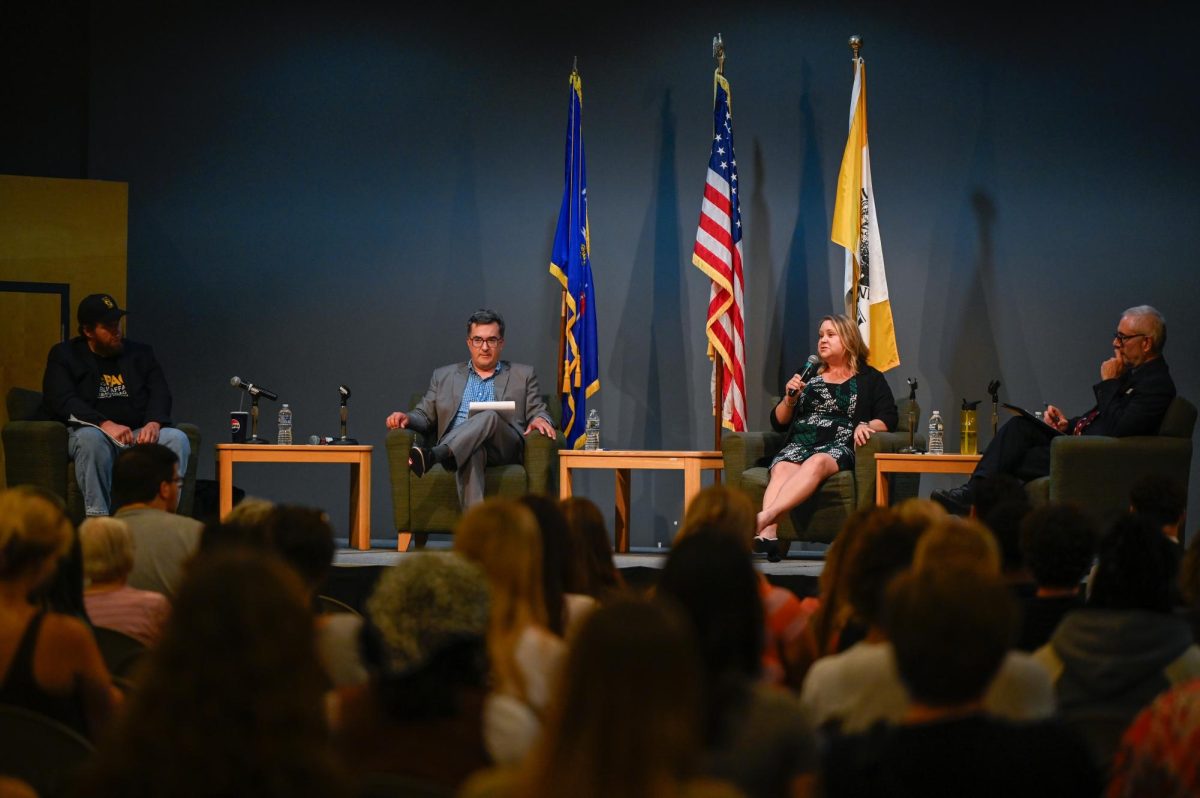Just outside of Reeve, students gathered to take turns cladding themselves in safety goggles, a “Smash the patriarchy” hard helmet and a sledgehammer to shatter scales on Tuesday.
In honor of Mental Health Day, UW Oshkosh’s Women’s Advocacy Counsel (WAC) hosted WAC-a-scale, where they invited students to “smash” scales and beauty norms with a sledgehammer.
“The number on the scale can mean everything to us because that’s what’s been instilled in us,” WAC president Eve Hawpetoss said.
A 2018 study found that 77.6% of college-going females suffered from body dissatisfaction, although body image issues are not exclusive to any gender.
WAC staff Eliza Farrow, who said they only own a scale to weigh their cat, said body image issues are extremely popular among students and should be addressed.
“Just today I had someone ask me for resources surrounding body image,” they said. “It’s definitely something that’s really relevant, it’s something that is coded in the media. We see it everywhere; it’s in ads, it’s in film and TV.”
They said weighing yourself can contribute to these issues and cause further declining mental health.
“It’s a way for people to really, especially if you have issues with body image and weight, to really obsess over and a way to control,” they said. “You can see the physical numbers on the scale … vs something that’s more abstract like how you look in your clothes.”
Farrow added that the Women’s Center has only one scale. When someone stands on it, it gives compliments instead of numbers.
UWO student Maya Carpenter said taking a hammer to the scales helped her let go of pent-up emotions.
“It helped me release anger I had built up,” she said. “It felt really good to just smash something.”
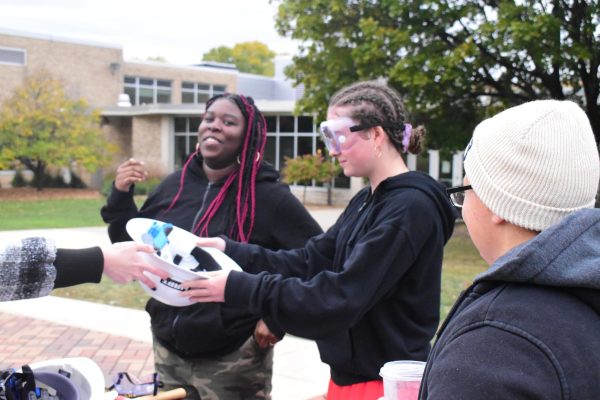
She said one of the most prominent times stepping on the scale is harmful for her mental state is being weighed at doctor appointments.
“I feel a lot of pressure when I step on the scale,” she said. “That they’re going to tell me I’m too small or I’m overweight for my height. It’s like you have to be a certain height or weight to fit the ‘average.’”
Bryana Akins, another UWO student who took some rage out on the scales, agreed that stepping on the scale at the doctors is an uncomfortable experience.
“I understand it’s their job, but sometimes it makes me feel insecure,” she said. “I just want to check my weight on my own time.”
Akins said she encourages people to be kind about other people’s appearance.
“Let them be comfortable in their own body,” she said. “Why would you want to try and change them or bring them down?”
However, body image issues aren’t always fixed with kind words, Farrow said. Sometimes, eating habit influence how we view ourselves.
“Avoid dieting, especially like crash dieting, because that can be really unhealthy,” they said. “Make sure that you’re getting enough to eat; a lot of students forget to eat during the day.”
Farrow said it can sometimes be comforting to know that many others are also dealing with low self-esteem about their bodies.
“Also, just know that you’re not alone,” they said. “If you have issues with body image, there are a lot of other people who do, too.”
Farrow said numbers on the scale are not indicative of overall health, and people should instead listen to what their bodies need.
“I think that focusing more on how you feel and how your body feels can be better than just looking at the numbers on the scale,” they said. “Smashing the scales is symbolic of freeing people from that.”


